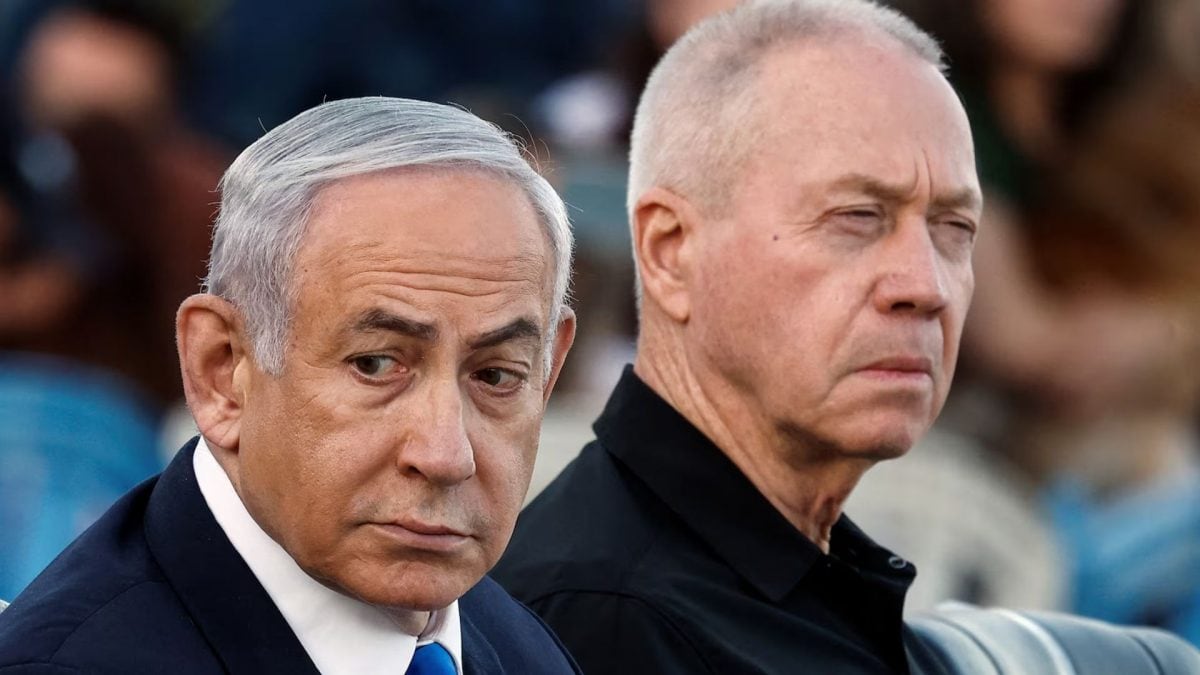
On Thursday, the International Criminal Court (ICC), located in Hague, in the Netherlands, issued public arrest warrants against Israeli Prime Minister Benjamin Netanyahu, his former defence chief Yoav Gallant, and Hamas leader Mohammed Deif for alleged war crimes and crimes against humanity in the ongoing conflict in Gaza. Israel has said that Deif was killed by their forces in August. The arrests were sought by ICC Chief Prosecutor Karim Khan.
The ICC is an international court established in 2002 to prosecute war crimes, crimes against humanity, genocide, and crimes of aggression when member states are unwilling or unable to do so themselves. It is allowed to prosecute crimes committed by citizens of member states or those perpetrated in member states’ territory by other actors. With 124 member states, including 33 from Africa, 19 from Eastern Europe, and 25 from Western Europe and Canada, the ICC’s budget for 2024 is 187 million euros.
They are currently carrying out investigations in multiple countries ranging from Ukraine to Venezuela and Asian countries such as Myanmar and the Philippines. Another well-known fugitive wanted by the ICC is Russian President Vladimir Putin. A warrant was issued for his arrest in March 2023, a move that Kremlin has often denounced as meaningless, denying that any wartime atrocities have been committed by Russia in their ongoing conflict with Ukraine.
The court is supported by several UN and EU members, but powers such as the United States, India, China, and Russia are not members. Their argument against the ICC is that it could easily be used for politically motivated prosecutions. Indeed, the United States of America has since strongly rejected the validity of the arrest warrants, as has Israel, of course, and several other states.
So, what does this warrant really mean, and what are its implications? The ICC does not have its own law enforcement, so it depends on its 124 member states to carry out arrest warrants. Israel is not a member state, and hence, the ICC does not have jurisdiction to arrest Netanyahu or Gallant in Israel. However, on Thursday, ICC announced that it can exercise its jurisdiction on the basis of the “territorial jurisdiction of Palestine”.
Essentially, the immediate implications of the warrant for Netanyahu and Gallant are arrest, only if they are traveling to a member state of the ICC that might choose to enforce the arrest warrant. In Israel, they are not at risk of being arrested. ICC also does not try defendants in their absence apart from a few exceptions, which means that Netanyahu and Gallant probably will not be facing trial unless they are arrested in a member state and brought to the Hague.
While the chances of an arrest may be low, the warrants cast a long shadow over Netanyahu and Gallant and further isolate Israel on the world stage, as their international travel will not face restrictions. Netanyahu and Gallant will now probably choose not to travel in most EU countries, which are all ICC member states. Josep Borrell, the EU’s top diplomat, has described the arrest warrant as “binding” for every state that is party to the Rome Statute, the international treaty that established the ICC.
This is only the latest chapter in global reactions to the Gaza conflict, which has divided the world. So, what are the legal aspects of these arrest warrants? The jurisdictional issue indeed is complex in this case. The ICC does technically have jurisdiction because the Assembly of State Parties (the 120+ countries that have ratified the Rome Statute) accepted that Palestine is a state for the purpose of the Rome Statute (that includes its internationally recognised state borders).
ICC’s jurisdiction is primarily based on territorial jurisdiction—if the crime is committed in the territory of a State party, then the court has jurisdiction. The crimes in concern here were allegedly committed in Gaza, which is within the internationally recognised borders of Palestine. Therefore, the ICC has jurisdiction over the alleged crimes, despite Israel not being a member state or Palestine being a fully recognised state.
It would have been illegal if the ICC had issued a ruling, stating that war crimes have been committed. These issued arrest warrants currently do not entail a guaranteed punishment. Also, the standard for issuing the arrest warrant is one of the lowest in international criminal law: “Reasonable grounds to believe”.
In fact, the standards for issuing warrants are so low that ICC chambers have never actually denied any warrants for arrest. Also, it is the international court of law with the most number of acquittals. When one refers to the ICC as the last resort, one is talking about the principle of complementarity.
In actual practice, what one needs to challenge the admissibility of a case successfully is not an independent judiciary, but instead to show that the judiciary is working on that same case and taking necessary and concrete steps. This is how the UK at one point had successfully challenged the admissibility of a case involving British soldiers. Suppose the judiciary of Israel at any point opened an investigation against the defendants of this arrest warrant and showed that it is taking concrete steps.
In that case, they will be able to challenge the admissibility of the case successfully. Even if Netanyahu and Gallant were to be acquitted, the ICC would not be able to try them unless the prosecutor proves that it was a sham trial, which is an extremely difficult task. Of course, there are some very valid points of debate here, including the argument that how can a treaty-based institution affect citizens of states that have not ratified it.
Fundamentally, the ICC has now made sure by publicising the warrant, but not its entire text, that Netanyahu will now not be able to enter any ICC signatory. For Israel, it is yet another move to isolate them internationally while also applying pressure during an armed conflict. For Palestinians, of course, it is yet another feel-good handout from the global community.
Not of much use, but a hug of solidarity, nonetheless. The author is a freelance journalist and features writer based out of Delhi. Her main areas of focus are politics, social issues, climate change and lifestyle-related topics.
Views expressed in the above piece are personal and solely those of the author. They do not necessarily reflect Firstpost’s views..














